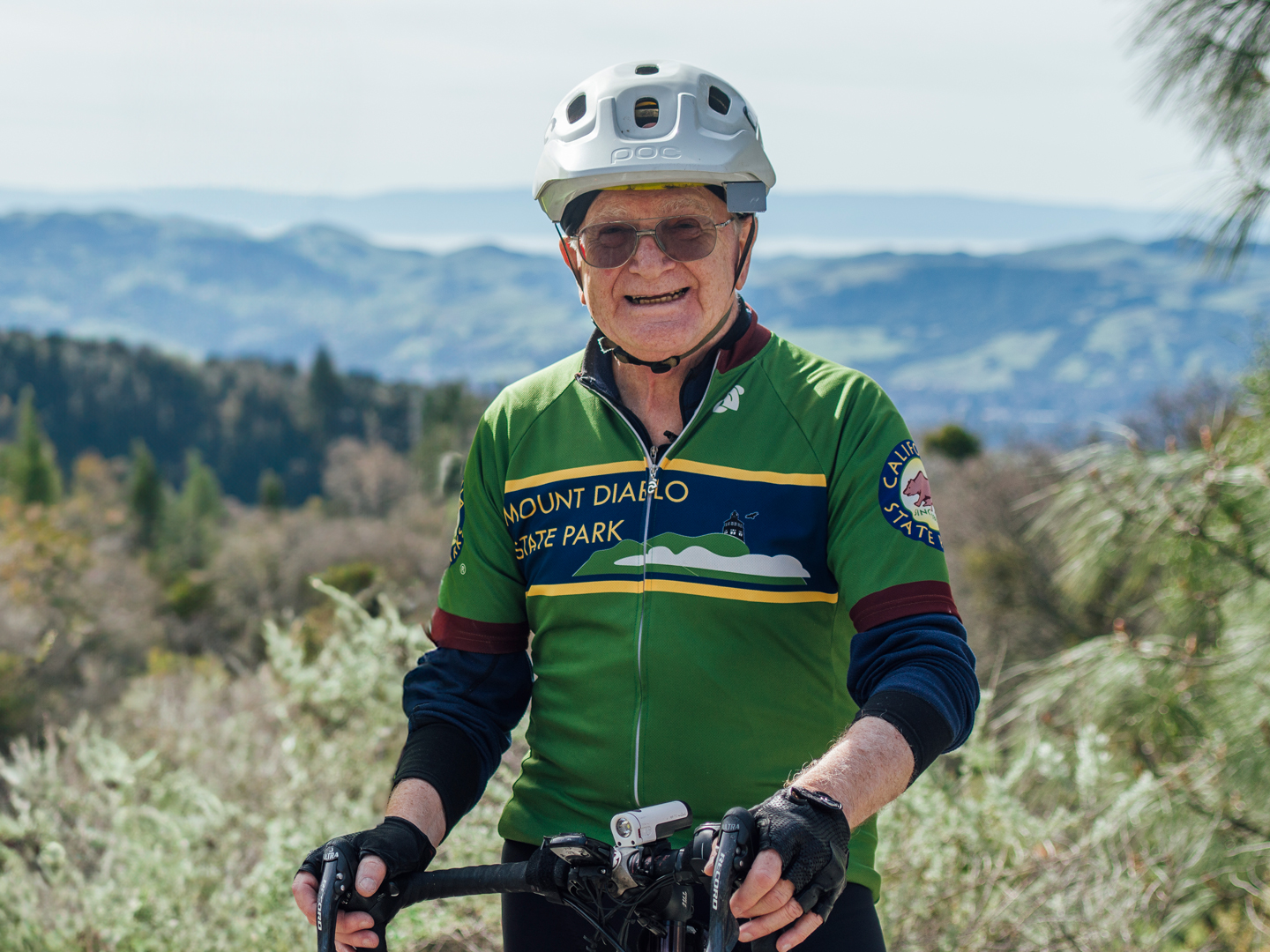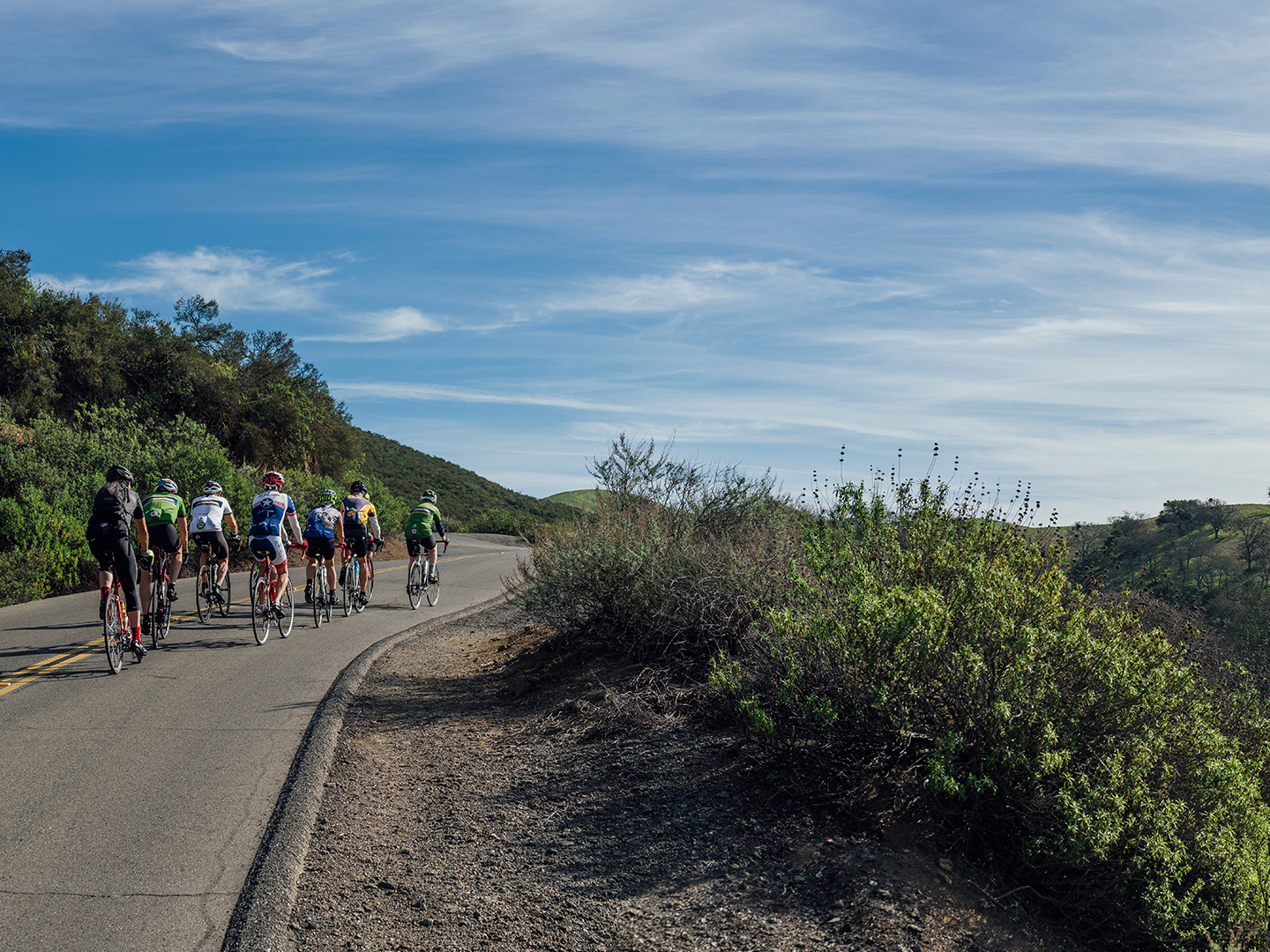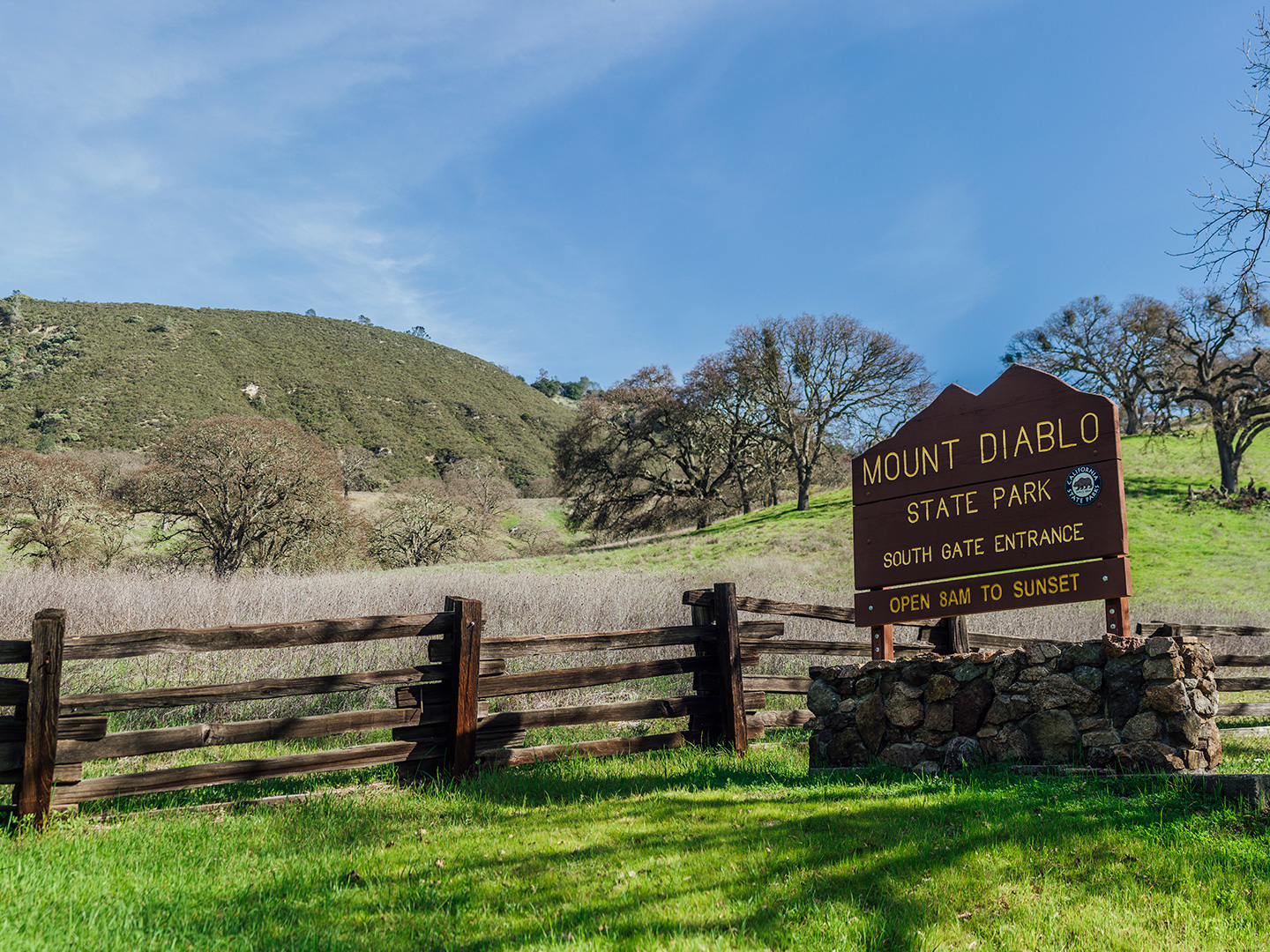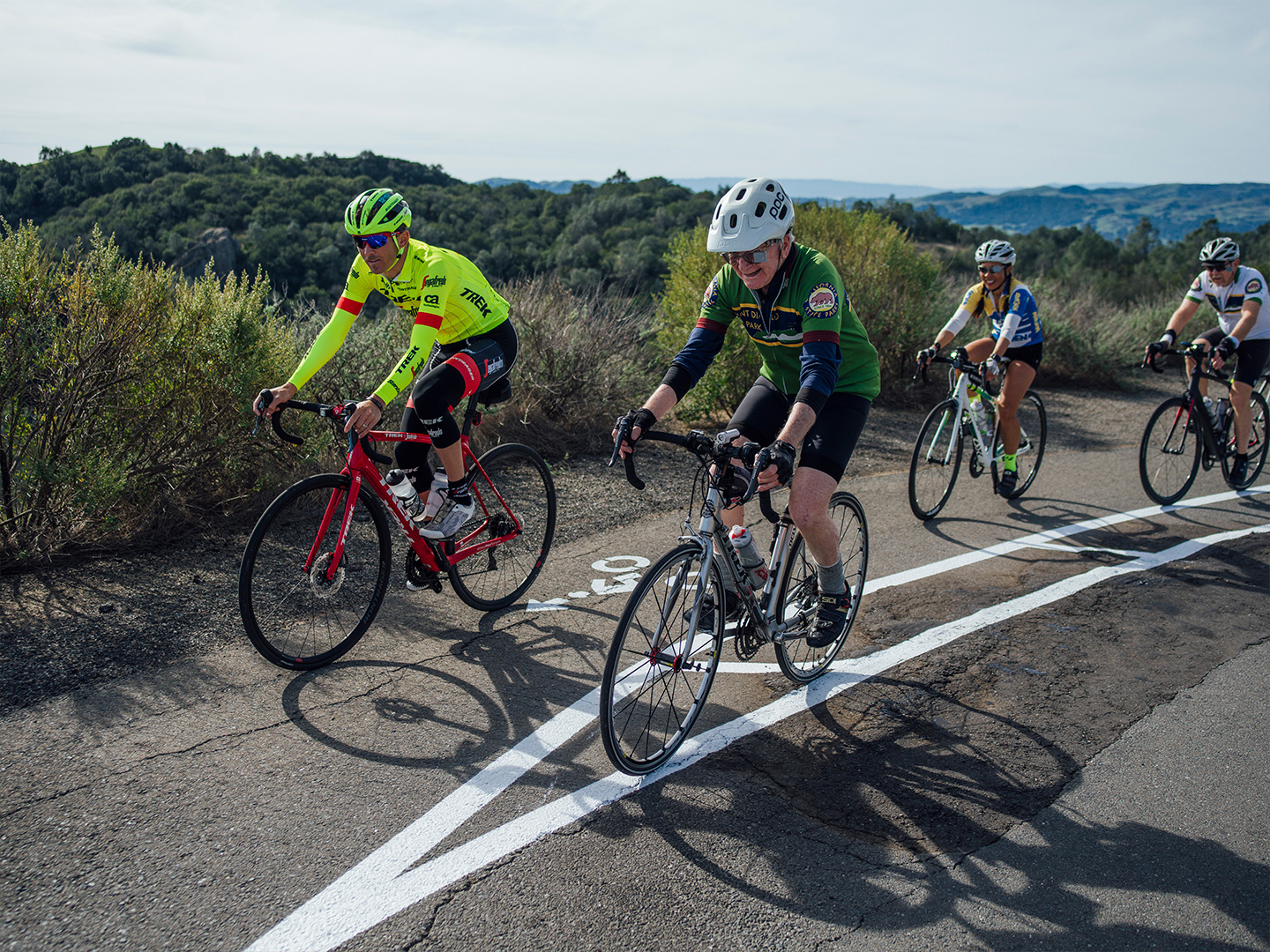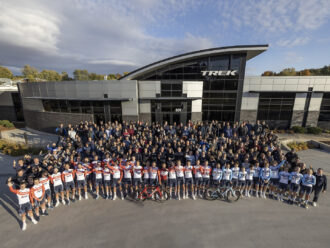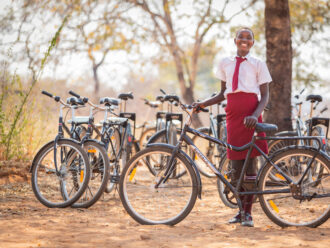On a cool December day in 2017, an 83-year-old Northern California cyclist named Joe Shami fired off an email to Trek President, John Burke, and a life-changing friendship was formed.
Joe told John about the prized Trek Project One he purchased in 2003, and how he had ridden his beloved steed to the summit of Mount Diablo, California, a whopping 496 consecutive weeks in a row, and planned to keep going until he hit 100,000 miles on his Trek. Joe was passionate about bicycle advocacy and had a vision for safer bike infrastructure on Mount Diablo — a passion shared by John.
Mount Diablo is a famous climb in California’s Bay Area, jutting a formidable 3,849 feet skyward over only 12.4 miles to stunning views of the Diablo Mountain Range. If the quad-searing grades that teeter as steep as 10.4% aren’t enough of a challenge, it’s also home to narrow, hairpin corners that leave drivers blind to their two-wheeled counterparts. Despite the challenges, over 150,000 cyclists ride Mount Diablo every year, making up 60% of the State Park’s vehicle traffic.
In 2021, John Burke planned to be one of the many cyclists summitting the iconic Northern California mountain, joining Joe Shami on his epic 100,000-mile ride, and celebrating the feat at the top with the gift of a new Project One e-road bike. John was readying his plans for the trip when, only a few months away from his incredible goal, Joe Shami was tragically hit and killed by an SUV while riding his bike in Lafayette, California.
But through tragedy grew waves of change. John traveled West to join Mount Diablo Cyclists (MDC), a group advocating for safer cycling infrastructure in Mount Diablo State Park, for Joe Shami’s memorial ride. Through the ride and celebration of Joe’s life, John met Alan Kalin, a passionate cyclist, retired U.S. Army Colonel, retired teacher, former Peace Corps Volunteer, current President of Mount Diablo Cyclists, and friend of Joe Shami.
For the past 14 years, Alan has ridden Mount Diablo a few times a week, always with a camera in tow. He often partnered up with Joe for the ride to the top, stopping at the summit for quick interviews. Joe would tell Alan how many weeks of climbing Mount Diablo he had tallied up, make comments about the weather, give an update on how many miles he had reached on his Trek Project One, and endearingly ask, “What else can I tell ya?” Alan shared these informal interviews on his Mount Diablo Cyclists Facebook group, cementing Joe Shami as the Legend of Mount Diablo — and surmounting quite the Joe Shami fan club, too.
Alan shared Joe’s vision to make Mount Diablo safer, and the two had worked together on projects before Joe’s passing. After retiring both from teaching and service in the U.S. Army in 2010, Alan used his passionate and strategic approach to problem-solving to create safer cycling conditions on Mount Diablo. His mission started with collecting a mass of public records and data about the collisions on Mount Diablo. Through his analysis, Alan found what he calls the “Commonality Factor” behind the majority of Mount Diablo’s cycling-related collisions. He explains, “Nearly 80% of collisions occurred in blind corners, in which a vehicle would get impatient and attempt to pass a climbing rider by drifting into the other lane, colliding head-on with cyclists traveling downhill.”
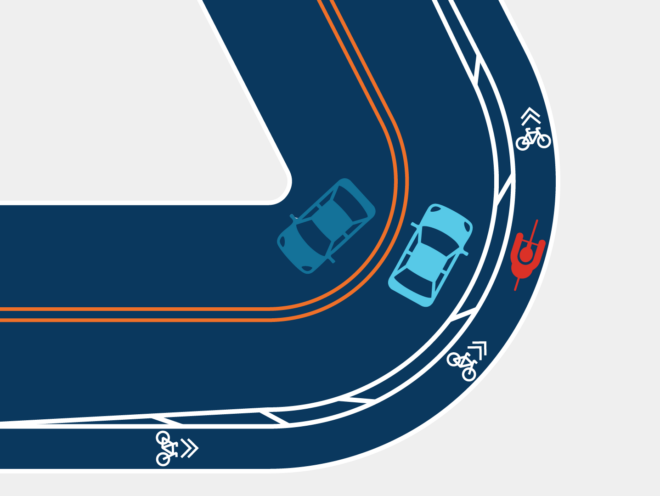
Armed with the knowledge of where and how these collisions were happening, Alan came up with an idea never before seen on roads around the world — bicycle turnout lanes. Functioning like a motor vehicle pull-out zone or passing lane, bicycle turnouts move cyclists onto the shoulder of the road as they climb steep, sharp turns. These turnouts give motorists plenty of space to pass cyclists without drifting across double-yellow lines, while cyclists have room to safely work their way up the steep climbs at a comfortable pace.
Alan faced a virtual obstacle course of bureaucratic hoops and pushback, but his dedication to the safety of cyclists kept him going.
“When people’s lives are at stake, you don’t give up,” Alan explains. “Sometimes it feels like there is nothing you can do, but you can’t give up.”
In 2016, Alan and members of MDC had their first big win — the first three bicycle turnouts on Mount Diablo.
The impact of turnouts was immediate — not only did bicycle turnouts reduce vehicle-cyclist collisions, but they also improved the relationship between cyclists and drivers. Frustrations dissipated for motorists who no longer felt trapped behind cyclists on a slow-going climb, and cyclists could breathe easy knowing vehicles could safely pass while they worked their way to the top. After the first turnouts were installed, Alan surveyed over 100 cyclists and drivers at the summit of Mount Diablo and found that 97% of both groups supported turnouts and were happy with the impact they made on their trip to the top.
“When people’s lives are at stake, you don’t give up. Sometimes it feels like there is nothing you can do, but you can’t give up.”
And Alan was just getting started. He reached out to California State Senator, Steve Glazer, and Assemblywoman Catherine Baker for their support. Alan realized there were 10 turns along the climb with enough remaining asphalt on the shoulder to simply paint a new line for turnouts, and three turnouts quickly became 13 — with no additional road construction required. That number grew again when Alan successfully convinced California State Parks to fund four more turnouts, bringing the total to 17.
Years have passed and more turnouts continue to be installed, with the help of a dedicated team of volunteers behind Alan on every step of the way.
Through donations from over 400 people and organizations, Alan and the MDC raised $753,922 to fund an additional 22 bike turnouts — $125,000 of which was willed to MDC by Joe Shami for the sole purpose of improving cycling infrastructure on Mount Diablo. Upon completion of these 22 additional turnouts for cyclists and motorists, Mount Diablo will be a safer environment for all to enjoy the beauty of the stunning State Park.
On August 24, 2024, Alan and the MDC hosted a celebratory ride, where Alan announced this incredible success at the summit of Mount Diablo. During his speech, Alan dedicated all 67 life-saving turnouts to Joe Shami, honoring his dedication both to riding his bike and promoting safer cycling infrastructure. Alan declared that, henceforth, August 24 would be known as Joe Shami Day on Mount Diablo.
To make change happen, Alan says, “You have to create a coalition of worker bees who are willing to roll up their sleeves, stay focused on the mission, and work toward the goal, even when there are setbacks. And you have to empower them again and again.
“You have to have a winning strategy with one common goal — and when cycling is concerned, that goal’s gotta be safety. Then, you bring smart people together and let them do great things.”
Beyond the bike turnouts, Alan has also bettered bicycle infrastructure on Mount Diablo through the implementation of signs for both cyclists and drivers on the ascents and descents, and getting double-yellow lines painted on blind corners that previously used just a dotted line.
Safer cycling infrastructure impacts everyone in a community. It decreases driver frustration, alleviates traffic, increases safety for cyclists, pedestrians, and motorists, and increases community connection. Changing cycling infrastructure on an entire mountain is challenging — but with vision, a plan, and unrelenting dedication, it absolutely can be done. Fittingly, Alan compares the process to a bicycle wheel.
“At the hub,” Alan says, “is the mission — it’s what you want to achieve. It is critical to have just one mission and to stay focused on it. Then, each spoke represents a different supporting element you need to achieve the goal. You need a winning strategy. You need a team of people who stand behind your mission. You need media and press. You need data such as collision reports and speed surveys. And you need buy-in from elected leaders — you can’t do it without them. Then you need to get each of these spokes to work together simultaneously.”
Change can happen and it’s worth the effort, and making a difference is getting even easier, thanks to nonprofits like People For Bikes. From backing grassroots initiatives for improving cycling and pedestrian infrastructure to laying the groundwork of how to get started, People For Bikes supports those wanting to make change in their own communities. Whether you’re looking to start small or embrace the gusto of Joe Shami and take on a whole mountain, with a clear vision and dedication, you can make a difference.

About the Author: Trek
Our mission: we build only products we love, provide incredible hospitality to our customers, and change the world by getting more people on bikes.

